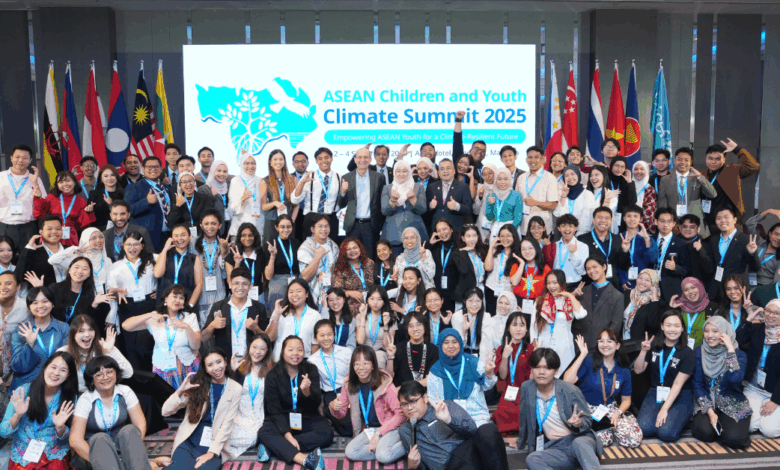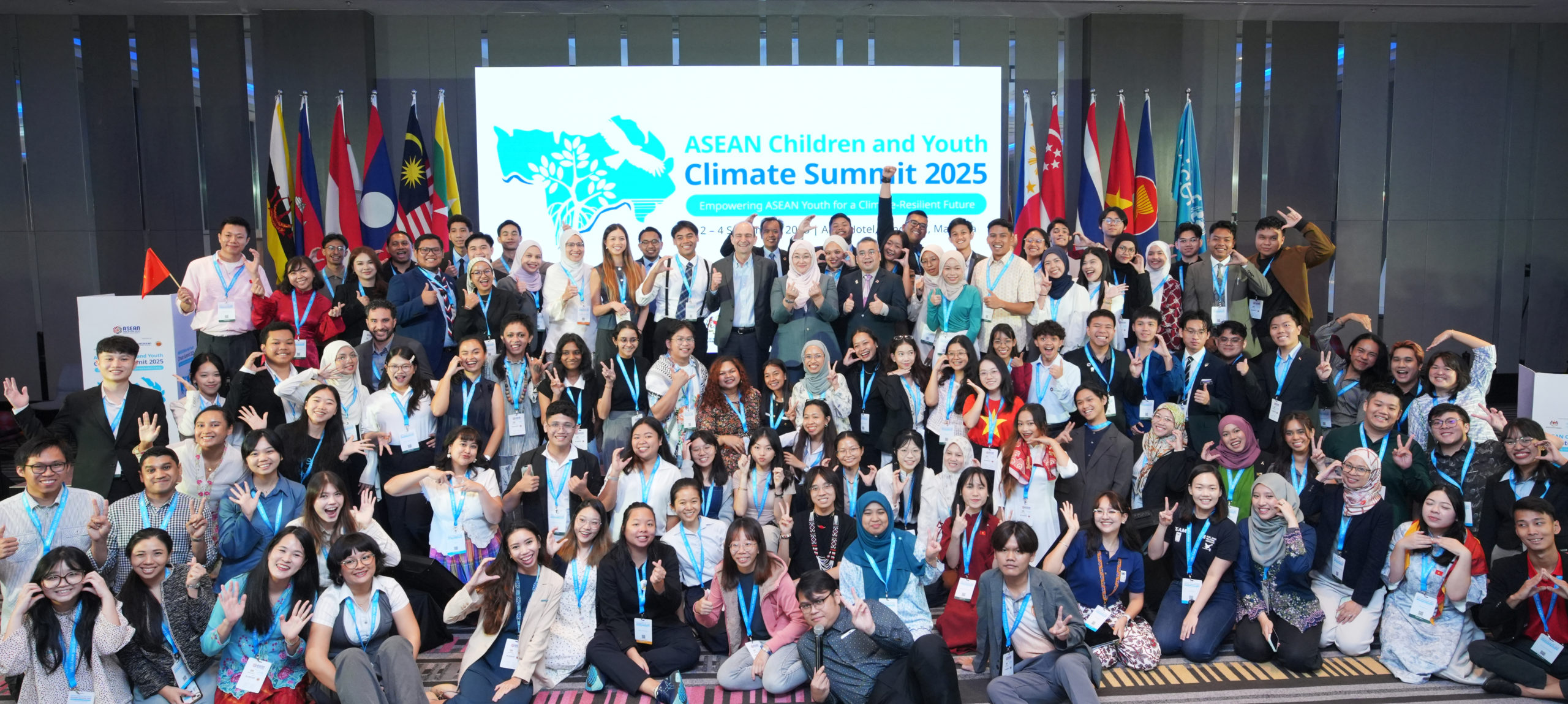
Langkawi, Malaysia, 4 September 2025 – Across ASEAN, 213 million youth – nearly one-third of the population[1], are growing up in a region increasingly shaped by climate change. This week, 100 youth delegates aged 15 to 25 from all ten ASEAN Member States have gathered in Langkawi to represent these voices at the ASEAN Children & Youth Climate Summit (ACYCS) 2025, a youth-led platform that places children’s rights at the centre of regional climate action.

The summit is co-organised by UNICEF and Malaysia’s Ministry of Natural Resources and Environmental Sustainability (NRES), with support from the Ministry of Youth and Sports (KBS). Held in parallel with the 18th ASEAN Ministerial Meeting on the Environment (AMME), the summit will culminate in a powerful outcome: the ASEAN Children & Youth Climate Declaration. For the first time, children and youth delegates will formally deliver their recommendations inside AMME proceedings on 4 September, marking a historic step from youth participation to policy influence.
“This summit is proof that ASEAN’s children and youth are not on the sidelines of climate action, they are leading it. Their ideas, their solutions and their determination remind us that climate change is not just an environmental issue, it is a child rights issue. Young people are developing recommendations together with their peers, and presenting them to ministers the same week. That is how participation becomes influence, and influence becomes impact for every child,” said Robert Gass, UNICEF Representative to Malaysia, Special Representative to Brunei Darussalam, and UN Resident Coordinator a.i. to Malaysia, Singapore and Brunei Darussalam, in welcome remarks to delegates.

The summit’s theme, “Empowering ASEAN Youth for a Climate-Resilient Future”, reflects a growing recognition that children and young people are not only affected by climate change, but they are the ones shaping solutions. Over three days, delegates will take part in youth-led dialogues, hands-on workshops, and experiential learning, including a visit to Langkawi UNESCO Global Geopark to explore mangrove ecosystems, biodiversity conservation and other ecological efforts. The programme also features a Youth Solutions Marketplace (Pasar Iklim), showcasing grassroots innovations and stories from across the region.
The 100 young delegates at the summit were selected through an open application process and nominations from UNICEF country offices, with diversity and inclusion at the core. The cohort includes Indigenous youth, community leaders, and climate advocates who are already driving change in their communities – from restoring mangroves and turning waste into compost to leading local climate education campaigns.
Forty-one per cent of children in the region face five or more overlapping climate and environmental shocks, nearly triple the global average[1]. Despite contributing the least to the problem, children and youth are the most affected today and will continue to bear the heaviest consequences in the years to come, from disrupted education and worsening malnutrition to increased health risks. This reality underscores the importance of youth leadership at the forefront of ASEAN’s climate-resilient future.
“NRES is honoured to co-host ACYCS 2025 as part of Malaysia’s ASEAN Chairmanship, and to provide a platform for youth perspectives within AMME. We believe that youth must be recognised as part of the solution, not only for the future, but from this very moment. Their voices, their ideas, and their leadership are essential in shaping policies and actions that will build a climate-resilient ASEAN in the years ahead,” said Datuk Nor Yahati Awang, Deputy Secretary General (Environmental Sustainability), Malaysia’s Ministry of Natural Resources and Environmental Sustainability, at the opening ceremony.

Hosting ACYCS 2025 at this pivotal moment in its ASEAN Chairmanship reflects Malaysia’s commitment to advancing climate action through policies such as the National Climate Change Policy 2.0[2] and the upcoming Malaysia National Adaptation Plan[3]. These complement broader ASEAN frameworks, including the ASEAN Climate Change Strategic Action Plan (ACCSAP) 2025–2030[1].
As ASEAN faces intensifying climate impacts, ACYCS 2025 sets a new precedent for inclusive climate leadership. The summit affirms that the voices of children and youth are not just valuable but indispensable; they must be at the centre of climate solutions, because the choices made today will define the future they inherit.
Source: Press Release